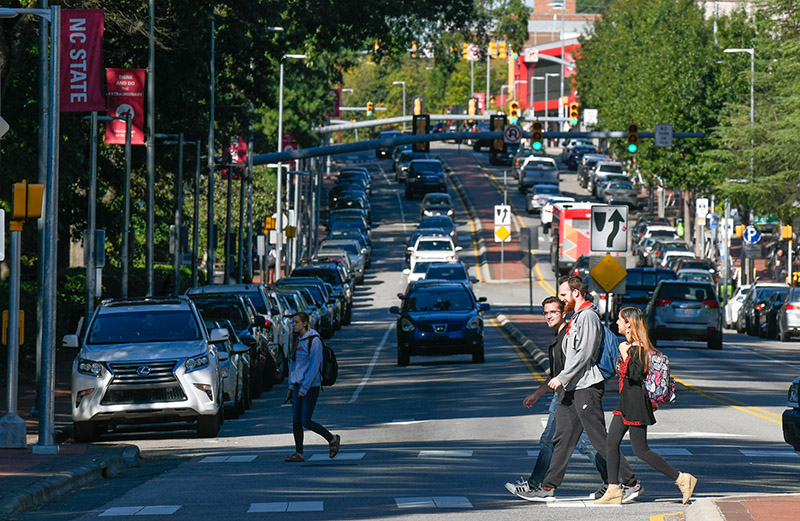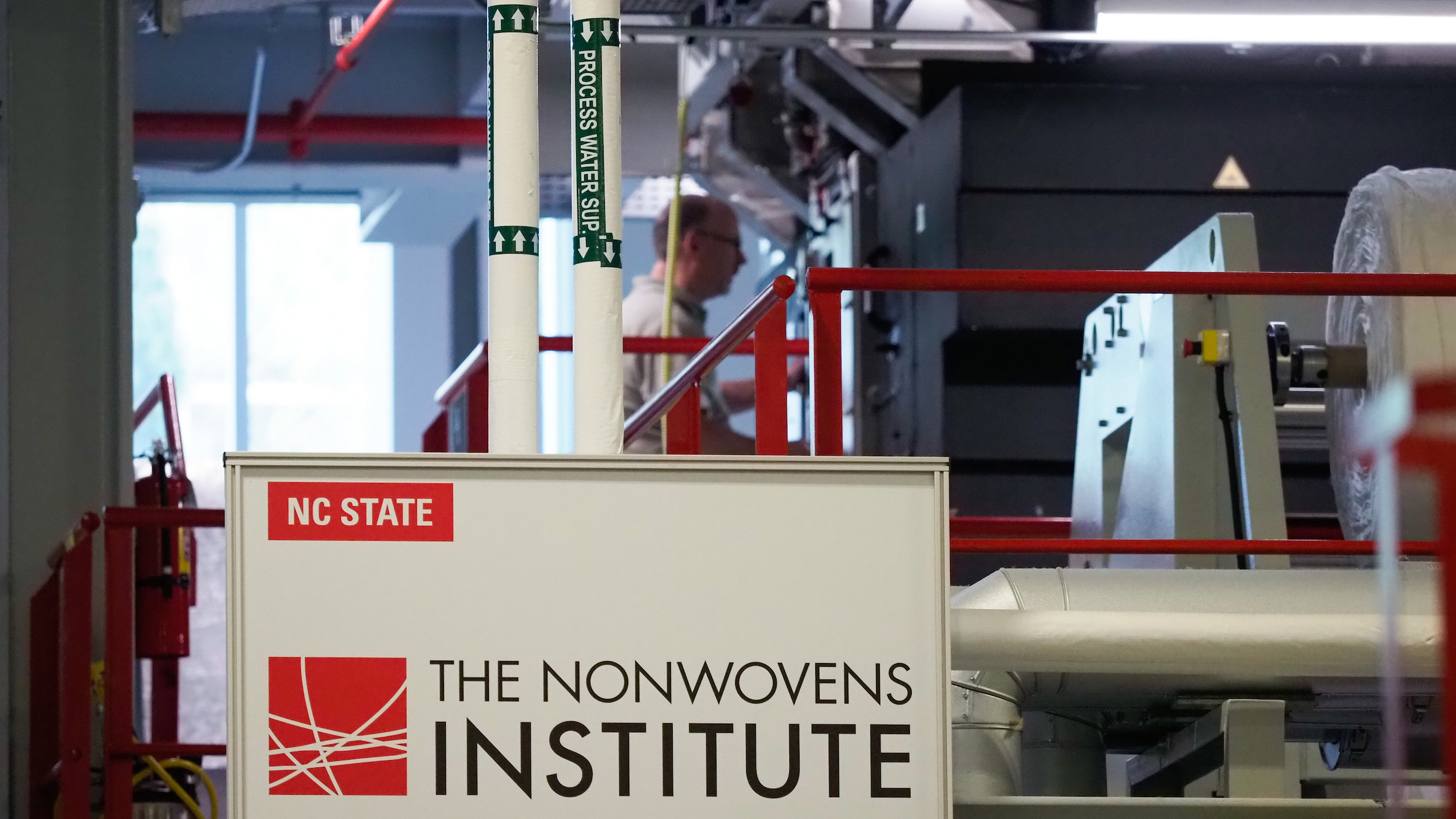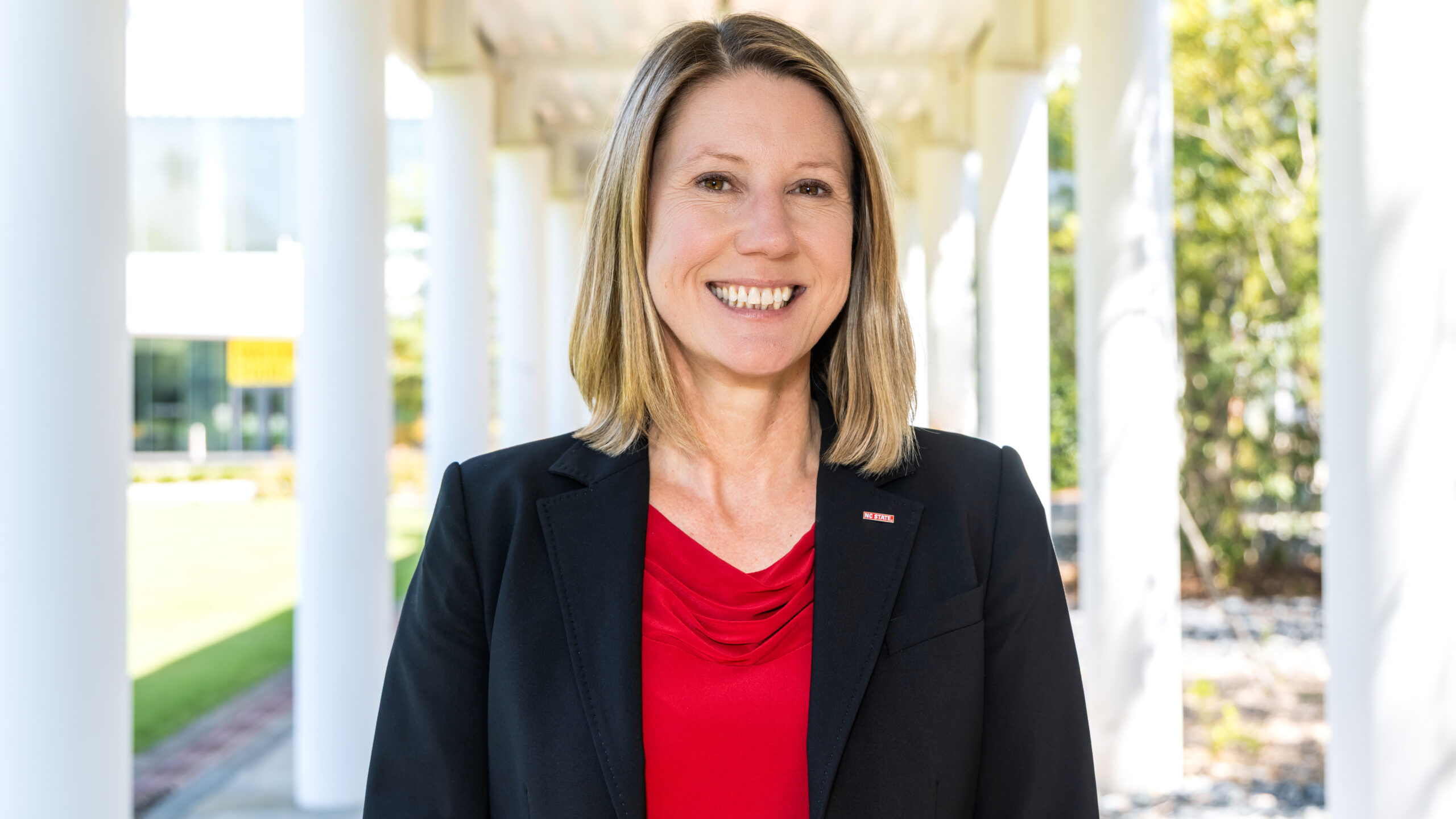NCDOT Announces Center Focused on Traffic Congestion and Mobility

NC State to lead research to bring new technology to congestion management
Increases in population and aging physical infrastructure across the U.S. have led to a broad increase in traffic congestion. Americans rely heavily on automotive vehicles due to a variety of reasons which include lack of access in many areas to public transportation, and the convenience, speed and comfort of personal vehicles.
NCDOT recognizes that in order to take advantage of available data to more efficiently route traffic and improve infrastructure, the area’s strong university community is the state’s best bet to discover novel and cutting-edge solutions that can be applied both regionally and nationally. In order to achieve that lofty goal, they are funding the creation of three University Research Centers of Excellence.
One of the three multi-disciplinary centers is focused on the reduction of congestion and improvement in mobility and will be led by Billy Williams, in conjunction with his role as Director of North Carolina State University’s Institute for Transportation Research and Education.
“Disruptive technologies will reshape the transportation industry,” said state Transportation Secretary Jim Trogdon. “This research will provide North Carolina with data we need to prepare for these changes.”
NC State University will serve as the lead on this initiative, but the effort is truly collaborative. NC State will work closely with research leaders at Duke University, Fayetteville State University, NC A&T University and UNC-Chapel Hill. Researchers at each of these universities will serve as center associate directors. The associate directors are:
- Dr. Mary (Missy) Cummings – Duke University
- Dr. Sambit Bhattacharya – Fayetteville State University
- Dr. Maranda McBride – North Carolina A&T State University
- Dr. Noreen McDonald – University of North Carolina – Chapel Hill (Department of City and Regional Planning)
- Dr. Randa Radwan – University of North Carolina – Chapel Hill (Highway Safety Research Center)
“We’re excited to work with our NCDOT partners and top university researchers from across North Carolina to enable improvements to our transportation systems that will provide access for all citizens to mobility options that minimize travel delay,” says NC State’s Billy Williams.
The research that comes out of the North Carolina Center of Excellence for Enhancing Mobility and Reducing Congestion will focus on three projects, each led by a PI from a different North Carolina university. These three projects are:
- Deep Learning Software for Traffic State Prediction, led by Sambit Bhattacharya, Fayetteville State University
- Smart Connected and Automated Vehicle Fleet Management: Developing Regional Dispatch Decision Support for Congestion Mitigation, led by Mary (Missy) Cummings, Duke University,
- First Mile to Health: Improving Healthcare Access in North Carolina, led by Kai Monast, NC State University
“Rural areas and underserved populations experience many healthcare barriers which make it more difficult to live active, healthy lives. Affordable, reliable, and convenient transportation helps to remove one of these barriers,” says NC State’s ITRE researcher Kai Monast. “Because of the many recent changes in transportation and healthcare policy, we are going to explore how people access healthcare today and develop tools that help us build mobility networks for the future that focus on the needs of the individual.”
“Our diverse research team from NCSU, UNC, NC A&T, and Fayetteville State University combines experts in transportation and healthcare policy, planning, computer modeling, and spatial analysis,” Monast continues, “ By working together, we will learn from each other to develop applied research that has the chance to positively impact people’s lives and make a real difference in our communities.”
“To avoid congested routes drivers increasingly rely on travel information from mobile applications. Widespread use of these applications can help relieve congestion and increase mobility especially when in-depth information about driving conditions and traffic incidents are shared by drivers in the active mode. However the active mode has inherent risks associated with distraction caused by mobile device usage while driving,” says Fayetteville State University professor Sambit Bhattacharya. “Data collected by sensors and video cameras located on the roadside can also provide in-depth information about traffic state while decreasing the need for driver participation. In order for the high volume and rapidly changing data to be useful, our multi-disciplinary team from different NC universities will create machine learning algorithms to estimate traffic state from data. The technology created by this applied research project can potentially improve traffic conditions.”
The Center of Excellence will also engage and expose students through their direct participation, ensuring both the creation of a strong future-ready transportation workforce and meeting the educational mission of our university systems.
The Center will begin operations in 2020.
Co- PIs on the project include:
- Eleni Bardaka, NC State
- Noel Gries, NC State
- Ali Hajbabaie, NC State
- Noreen McDonald, UNC-CH,
- Hyoshin (John) Park, NC A&T
- Raghavan (Srini) Srinivasan, UNC-CH
- Categories:


